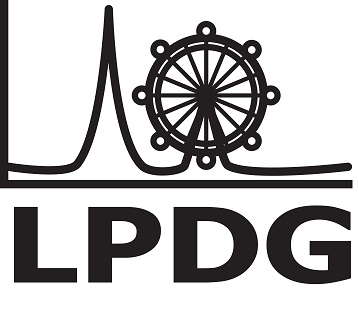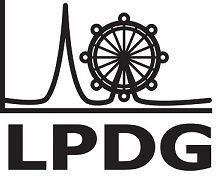 Proteomics seminar series for the South East
Proteomics seminar series for the South East
-- The London Proteomics Discussion Group --
Proteomics seminar series for the South East
 Proteomics seminar series for the South East
Proteomics seminar series for the South East
We are a free, local proteomics seminar series in the South East,
with a focus towards networking, discussion and supporting early career researchers.
The LPDG...
was founded to bring together the large community of proteomics scientists all working in and around London. We aim to provide a space for discussion, with a focus on methods and early career researchers (two fundamental building blocks of good research!), on all topics related to proteomics. The meetings comprise of research talks framed by a proteomics methods challenge, lunch, refreshments and pizza - they are free to attend thanks to sponsorship.
Meeting Dates:
Happy to be here on Bluesky. We'll be doing a little series of "meet the committee members" over the next few weeks, having just held our elections for new members. Look out for the old and new faces coming soon 😊
— London Proteomics Discussion Group (@lpdg.bsky.social) December 8, 2024 at 7:00 PM
These seminars would not be possible without our amazing sponsors.
If you are interested in sponsoring an LPDG seminar,
please get in touch at sponsor@londonproteomics.co.uk
for 22nd May 2025 Time 12:00
Would you like to present at an LPDG meeting? Email: speaker@londonproteomics.co.uk
Research presentations from:

Dr Johanna Jackson is an Advanced Research Fellow at Imperial College London and an Alzheimer’s Society Dementia Leader. After her PhD at Imperial and post docs at Lund University and Imperial, she joined Eli Lilly where she became a team leader and co-chaired their Neuroplasticity Drug Discovery platform. She has led the UK DRI Multi-‘omics Atlas Project; an open resource mapping the cellular pathology of AD. Her lab investigates the vulnerability of synaptic components, repurposed therapeutics and biomarkers in order to therapeutically target the synapse in AD

Professor Kevin Mills is the Head of the Translational and Clinical Omics Group at University College London and is based at the Great Ormond Street Institute of Child Health. Our aim is to bring together state-of-the-art technology to find new drug targets, disease mechanisms, identify new biomarkers and develop new and more precise tests for the NHS. Our research group is composed of approximately 25 full time researchers and includes both clinical research fellows and basic scientists working side-by-side. We are unique in that we can use our omic capability to help understand disease mechanisms and identify drug targets, but also have the ability to translate any biomarker into a test to NHS or Industry accredited standards. We specialise in creating high throughput, multiplexed and bespoke panels of biomarkers for the diagnosis and monitoring of treatment of patients with complex diseases.

I am Principal Scientist in R&D Dpt in Lonza Biologics and focus on use of proteomics and multi-omics for applications in bioprocessing including MS-based analysis of host cell proteins, identification of predictive markers and targets for further improvements of expression system.

Dr Irbaz I. Badshah is a postdoctoral researcher specialising inbioinformatics and cell signalling. His recent work involves developing statistical methods to systematically identify biochemical networks in cancer cells, aiming to understand cancer dependencies and potential therapeutic targets. Currently, he is engineering efficient tools for the quantification and analysis of proteomic mass spectrometry data, utilising advanced computational approaches, including machine learning.

Xun is a Biomedial Research MRes Postgraduate student at Imperial College London. His research focuses to integrate proteomics, metabolomics, and lipidomics into a unified workflow using membrane-bound particles (including EV) enriched plasma from a single sample. Our results highlight a biphasic extraction protocol that enables robust recovery and detection of EV-associated analytes, advancing the development of a sensitive, minimal-invasive plasma biomarker platform.